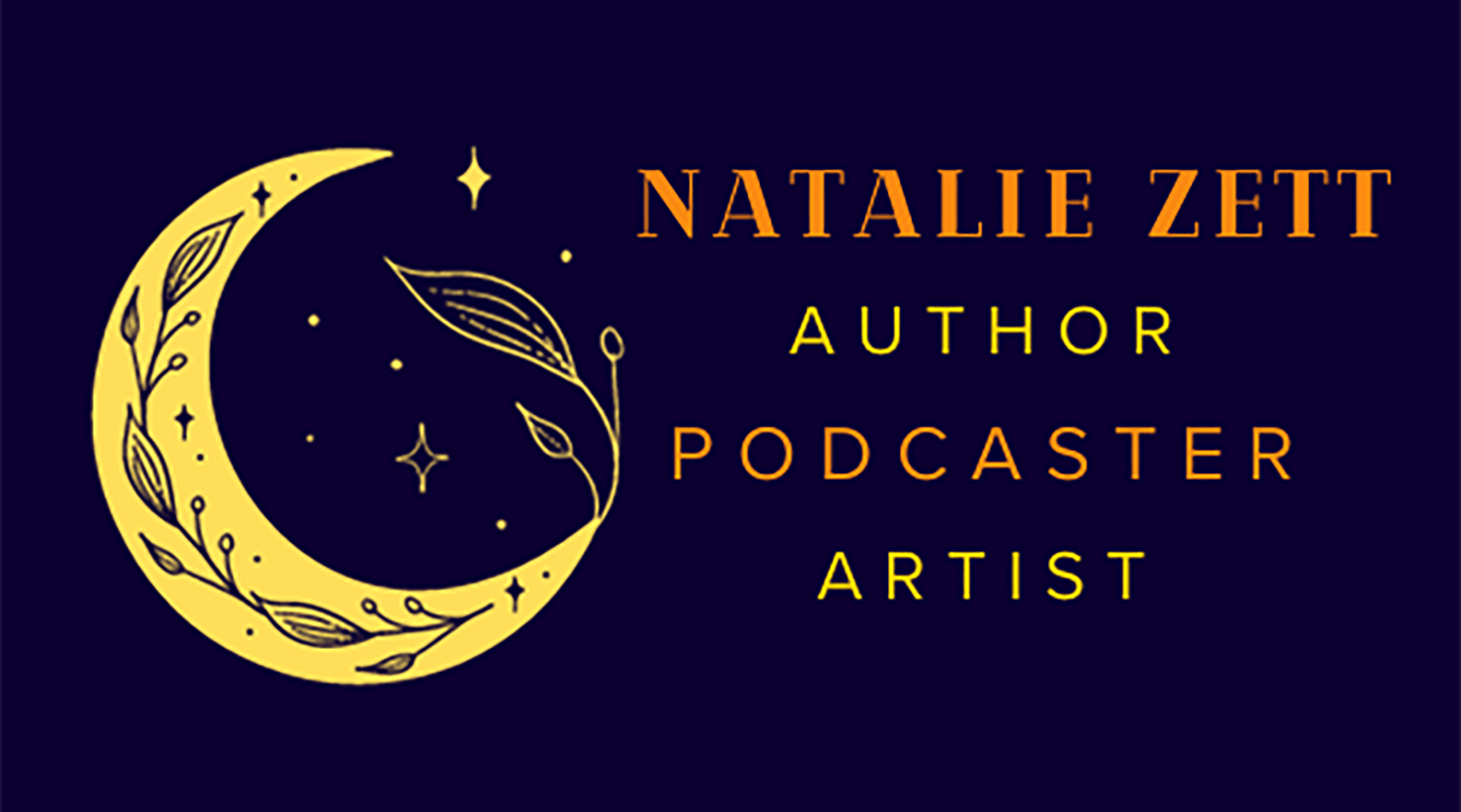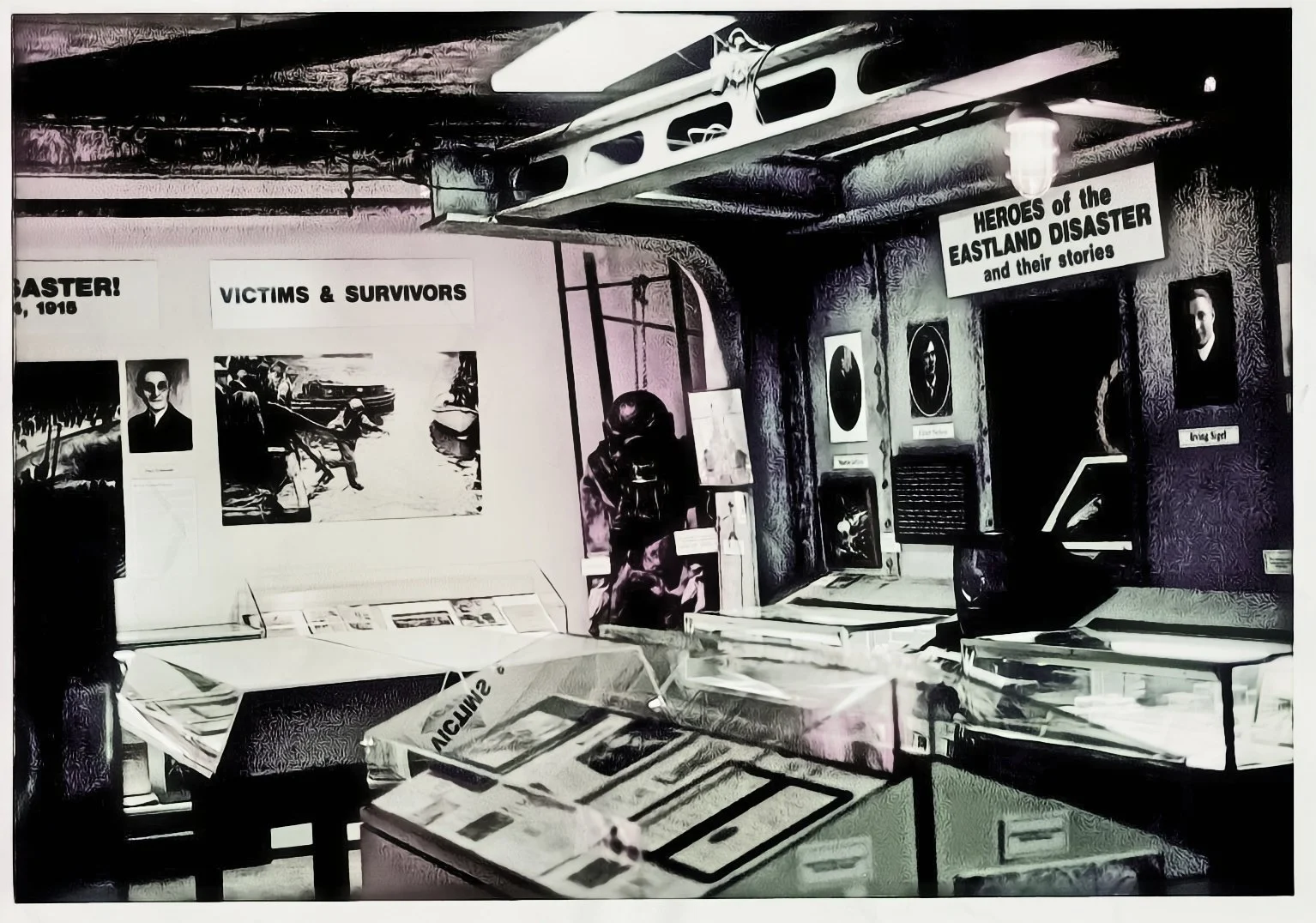From Hawthorne Works to Heartbreak: Legacy of Loss
The collage includes historical imagery related to Cicero, Illinois, with references to the Hawthorne Works, a postcard reading "Greetings from Cicero, Illinois," and various historical photos, including one of a nurse and a child standing by railroad tracks. The title at the top reads, "From Hawthorne Works to Heartbreak: Legacy of Loss," focusing on the emotional impact of the Eastland Disaster.
“Gladys' phrase, our families, struck Zara. This was another kind of family, bound by catastrophe, not DNA. A grief so encompassing that it sliced across culture, religion, gender, class, and even time. Yes, these people, too, were her family.” - Flower in the River by Natalie Zett
Another Kind of Family…Bound by Catastrophe
You know, one great thing about writing a book is that you can quote yourself. It's really handy when you have those light bulb moments - you can write them down and they're always there when you need them.
The character "Gladys" (in the quote above) was inspired by a woman I met at one of the first Eastland events in Chicago. Her name was Rosemary Pietrzak, and she lost several family members in the Eastland Disaster too. If I remember right, she came up with the phrase, "They didn't die on the Eastland, but they did die of the Eastland," when talking about other relatives. Those words have stayed with me all these years. That phrase really captures how the tragedy affected families for generations.
Rosemary was a retired teacher, about my mom's age. She reminded me so much of my mom - smart, kind, and always ready with a story. Over the years, Rosemary kept sharing the Eastland Disaster story, making sure it wasn't forgotten.
I didn't know her well, but I truly admired her. She had this wonderful humility about her. Like a good journalist, she put her subject, not herself, first. Rosemary wasn't looking for attention - she just wanted to make sure her family's story was heard. I'm so glad her experiences are preserved in newspapers and some documentaries.
While researching Cicero and the Hawthorne Works for this week's episode, I came across Rosemary's name in one of the newspapers. It was like finding a familiar face in an old photo album. This discovery led me to even more names and histories connected to the Eastland Disaster.
As wonderful as this experience was, it was also painful to think about all the stories that are getting lost. Rosemary's dedication to sharing her family's experience reminds me why this work matters. It encourages me to keep going, to keep asking questions.
So here's my invitation to you: dive into those archives, ask those questions, and uncover these stories yourself. You might be surprised at what you find and how meaningful it is to preserve these histories. Every story we save is a small victory against forgetting.
Show Notes:
Welcome to the 70th episode of Flower in the River! Today, we're peeling back the layers of time to explore the chaotic history of early 20th century Cicero, Illinois, focusing on the behemoth known as Western Electric's Hawthorne Works.
My journey begins with a fateful trip to Chicago in 1998, driven by an inexplicable pull to uncover my family's hidden past. Little did I know that this adventure would lead me to the ruins of Western Electric and the doorstep of my Aunt Pearl, who held the key to our untold stories.
We'll dive into the immigrant experience in Cicero, examining what drew so many to this bustling suburb and the profound impact of the Eastland disaster on the community. Through newspaper articles and personal accounts, we'll uncover the heartbreaking story of the Schultz family, who lost multiple members in the tragedy and faced additional hardships in its wake.
Central to this narrative is Rosemary Pietrzak, granddaughter of Anton and Pearl Schultz. Rosemary's mother, Marie Schultz Pietrzak, lost a brother, two sisters-in-law, and an infant nephew in the Eastland disaster. Through Rosemary's recollections, we gain intimate insight into how the tragedy affected her family for generations.
Join me as we honor those who've kept these stories alive, like Rosemary, who tirelessly shared her family's experiences. We'll reflect on the words of Viktor Frankl and consider how tragedy can shape us and connect us to our shared humanity.
This episode is a testament to the enduring spirit of those affected by the Eastland disaster and a reminder of the importance of preserving and sharing our family histories. Don't miss this powerful exploration of Chicago's past and its lasting impact on generations to come.
The Good Life/Berwyn Life, July 26, 1990
Note: I shared excerpts from this paper in this podcast episode.
Eastland’s day of Destiny, The LIFE (the Good Life), Berwyn, IL July 25, 1990
Rosemary Pietrzak as featured in The LIFE (the Good Life), Berwyn, IL July 25, 1990
“Hawthorne Works rallies to rescue.” The LIFE (the Good Life), Berwyn, IL July 25, 1990
Article from The LIFE, Berwyn, IL, August 26, 1990
A newspaper clipping from "The Life" dated Sunday, August 26, 1990. The headline reads "Thanks offered in wreath laying." The article expresses gratitude to various individuals and organizations for their contributions to the commemoration of the S.S. Eastland disaster of 1915. Key acknowledgments include thanks to The Life for coverage, Eileen Pech for research, Robert Malinski for initiating the idea, Kavina Floral Shop for their wreath, and transportation assistance from the Berwyn-Cicero Council on Aging. The keynote speaker was John S. Kociolko, Cicero town trustee. Special mentions are made of Elaine Mahinski, Frank Rehor, Albert and Helen Rodig, Harriet Twinn, Henry Zbasnik, Isabelle Bilecki, Virginia Kudla, Irene Peters, Rosemary Pietrzak, Doris Remp, Raymond Suda, Mr. and Mrs. David K. Nelson, and others for their roles and participation. Norma F. Zbasnik, President of the Historical Society of Cicero, authored the piece.
Extra Western Electric History
Although this occurred years after the Eastland Disaster, this interesting vintage news pertains to Western Electric History.
**Protest by Western Electric Workers**
Engineering employees of Western Electric Co. meet to consider strike action. National Union of Electrical and Radio Workers Local 714 board of directors meet and vote to authorize strike if necessary. Union conditions still not met. Parade against Western Electric's handling of the contract. Crowd of Western Electric employees board buses to attend protest meeting. Jan 24, 1956 (Chicago Sun-Times Photo)
A vintage photo from Western Electric's history. Chicago Sun-Times photo from January 23, 1956, showing Western Electric employees gathered for a protest meeting. The workers, members of the independent Western Electrical Technical Employees union, were protesting over salary negotiations. Photographer: Ralph Arvidson.
More Western Electric Photos
Photo from my visit to Dave Nelson’s Eastland Museum, Chicago, circa 1999
Dave Nelson's Eastland Museum, Chicago, circa 1999
Podcast and YouTube Links
From Hawthorne Works to Heartbreak: Legacy of Loss (Podcast link).
From Hawthorne Works to Heartbreak: Legacy of Loss (YouTube link).







